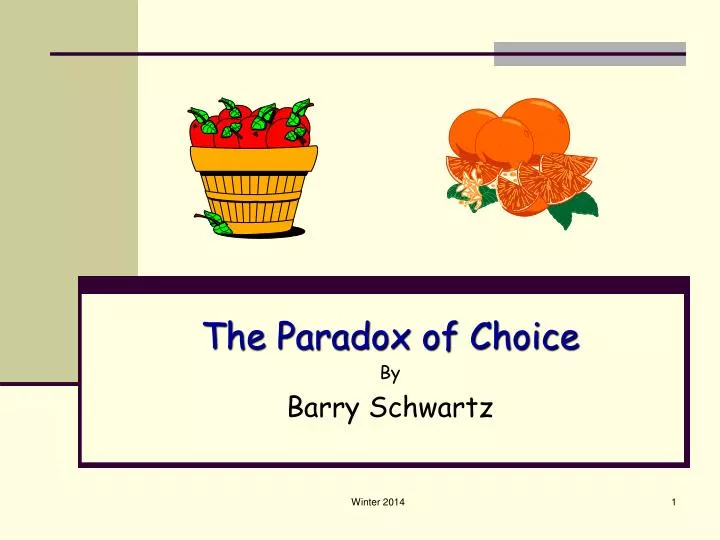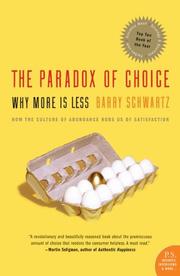
a chooser thinks about consequences, values, and can create choices or refuse to make any a picker just hopes for the best people think accidents kill as many as diseases (though latter kill 16x more), homicide = strokes (latter kills 11x more) dramatic deaths overestimated (and this correlated with newspaper coverage).

saliency: people are swayed by vivid video on how police are even when told it is atypical case availability heuristic (we think there are more words that start with “t” than have it has 3rd letter) James Twichell: “Ads are what we know about the world around us”. people rated "colonoscopy plus" as less unpleasant than rival (even effected 5-year follow ups) al.’s remembering utility by “peak-end” rule (people preferred noise that ended less unpleasantly even though maximal unpleasantness lasted longer) experienced, expected, and remembered utility rarely line up faithfully

in fact staying with a job doesn’t show loyalty, but a lack of ambition. work is unconstrained by what your parents’ did or geography: a 34 YO has already worked for 9 companies 65% say they would choose own treatment if got cancer, but only 12% actually do this 30% of people bought from the small sample of jams, only 3% bought from the large sample (those buying from small sample were more satisfied) we’d be better off if we embraced some limits on choice instead of rebelling, by seeking “good enough” rather than the best, by lowering our expectations about our decisions, by making our decisions nonreversible, and by not comparing ourselves to others as much


“choice no longer liberates, but debilitates” -“choice overload” With the latest studies on how we make choices in our personal and professional lives, Schwartz offers practical advice on how to focus on the right choices, and how to derive greater satisfaction from choices that we do make. In accessible, engaging, and anecdotal prose, Schwartz explains how a culture that thrives on the availability of constantly evolving options can also foster profound dissatisfaction and self-blame in individuals, which can lead to a paralysis in decision making and, in some cases, depression. In The Paradox of Choice, Barry Schwartz explains why too much of a good thing has proven detrimental to our psychological and emotional well-being. Whether we're buying a pair of jeans, ordering a cup of coffee, selecting a long-distance carrier, applying to college, choosing a doctor, or setting up a 401K, everyday decisions have become increasingly complex due to the overwhelming abundance of choice with which we are presented. In the spirit of Alvin Tofflers' Future Shock, a social critique of our obsession with choice, and how it contributes to anxiety, dissatisfaction and regret.


 0 kommentar(er)
0 kommentar(er)
